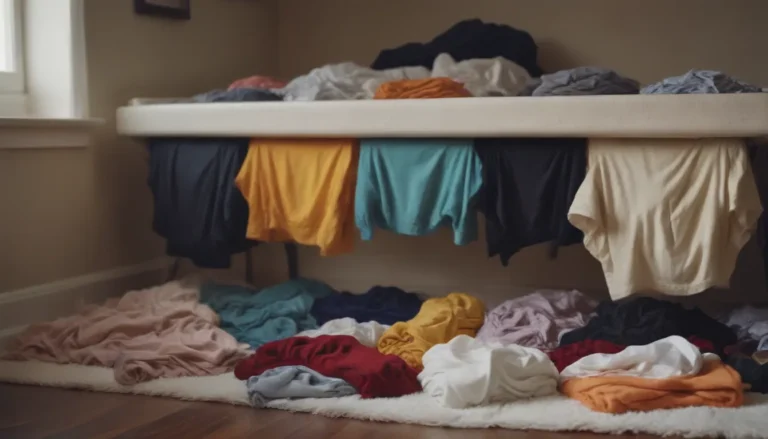The Ultimate Guide to Age-Appropriate Chores for Children

Assigning chores to children is not just about getting help around the house; it’s also a valuable tool for their development. Research shows that children who regularly participate in chores tend to have higher self-esteem, patience, and are better equipped to handle responsibility and frustration. These skills learned through chores can have a positive impact on various aspects of their lives, including school, work, and relationships. In this comprehensive guide, we will explore age-appropriate chores for children ranging from 2 to 18 years old, along with tips and strategies to make the chore experience enjoyable and beneficial for both children and parents.
Why Assigning Chores is Important
Before we delve into the specifics of age-appropriate chores, let’s discuss why assigning chores to children is crucial for their development. Here are some benefits of assigning chores to children:
- Promotes responsibility and accountability
- Builds self-esteem and confidence
- Teaches important life skills
- Fosters independence
- Instills a sense of contribution to the family unit
By incorporating chores into your child’s routine, you are setting them up for success in various aspects of their lives.
Age-Appropriate Chores: A Breakdown by Age Group
Ages 2 and 3
Toddlers are eager to help and be involved in household tasks. While their contributions may not always be as helpful as we would hope, the act of involving them in chores at a young age is beneficial. Here are some age-appropriate chores for children aged 2 and 3:
- Putting away toys
- Picking up clothes
- Helping set the table
- Sorting laundry (matching socks)
- Watering plants
While toddlers may need assistance and guidance to complete these tasks, the goal is to instill a sense of responsibility and involvement in household activities.
Ages 4 and 5
Preschool-aged children are still enthusiastic about helping and are eager to learn new tasks. Here are some age-appropriate chores for children aged 4 and 5:
- Making the bed
- Feeding pets
- Dusting furniture
- Sweeping floors
- Sorting recycling
Preschoolers can benefit from individual time spent with adults to teach them new chores. Consider using a sticker chart or daily chore chart to track their progress and provide positive reinforcement.
Ages 6 to 8
School-aged children may start to resist chores, but they also have a desire for independence. Here are some age-appropriate chores for children aged 6 to 8:
- Vacuuming
- Cleaning windows
- Folding laundry
- Emptying trash cans
- Setting and clearing the table
Using chore charts can help children track their responsibilities and motivate them to complete tasks independently. Remember to acknowledge and praise their efforts to encourage continued participation.
Ages 9 to 12
Preteens thrive on routine and clear expectations. Here are some age-appropriate chores for children aged 9 to 12:
- Washing dishes
- Mowing the lawn (with supervision)
- Organizing closets
- Cleaning bathrooms
- Washing the car
Establish a consistent schedule for chores and involve children in creating a system that works for the whole family. Providing rewards and consequences can help reinforce the importance of completing chores responsibly.
Ages 13 to 18
Teenagers are capable of handling more complex chores but may be limited by their busy schedules. Here are some age-appropriate chores for teenagers aged 13 to 18:
- Cooking meals
- Grocery shopping
- Managing a budget
- Babysitting younger siblings
- Yard work and landscaping
While teens are capable of performing advanced chores, it’s important to consider their workload and school commitments. Monitor their schedule and adjust chores accordingly to prevent overwhelm.
Tips for Creating Effective Chore Lists
While assigning chores to children is beneficial, it’s essential to approach it in a positive and constructive manner. Here are some tips for creating effective chore lists for children of all ages:
- Start early: Children can start doing chores as early as two years old. Encourage their involvement in household tasks from a young age.
- Keep it simple: Use clear and easy-to-understand instructions for chores. Consider using picture chore cards for younger children.
- Establish consistency: Maintain a consistent schedule of chores to help children become proficient in their responsibilities.
- Encourage effort, not perfection: Avoid perfectionism and show children that it’s okay to make mistakes. Use mistakes as teachable moments rather than criticism.
- Focus on accountability: Chores are meant to teach children responsibility and independence. Use small rewards as incentives to motivate adherence to chore lists.
- Express gratitude: Show appreciation for your child’s efforts by thanking them for completing chores. Positive reinforcement can encourage children to continue participating in household tasks.
By following these tips, you can create a positive chore experience for your children and instill valuable life skills that will benefit them in the long run.
Conclusion
Assigning age-appropriate chores to children is an important aspect of their development. By involving children in household tasks from a young age, you are teaching them valuable life skills, fostering independence, and promoting responsibility and accountability. From toddlers to teenagers, children of all ages can benefit from participating in chores tailored to their abilities and interests. By following the tips and suggestions outlined in this guide, you can create a positive chore experience for your children and lay the foundation for their future success.
Remember, assigning chores to children is not just about getting help around the house; it’s about instilling values and skills that will benefit them throughout their lives. So, grab a chore chart, involve your children in household tasks, and watch them grow into responsible, confident, and capable individuals.





